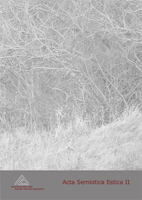Eksootikat ekspluateerides ja eksitades: George Psalmanazar ja tema Formosa
Exploiting and expanding exotica: George Psalmanazar and his Formosa
Author(s): Berk VaherSubject(s): Semiotics / Semiology
Published by: Eesti Semiootika Selts
Keywords: cultural studies; postcolonialism; postmodernism; exotica studies; ethnography; kultuuriuuringud; postkolonialism; postmodernism; eksootikauuringud; etnograafia
Summary/Abstract: Traditionally, exotica has been regarded as an umbrella term for predominantly colonialist fads of the faraway — merely camp at their best, downright degrading at their worst. As a postmodern concept, however, exotica has come to signify imagining and constructing a fictitious culture as a lifestyle — a Utopia which is idiosyncratic by nature yet likely to meet some demand on the global market for identity. George Psalmanazar, the early 18th century "Formosan" sensation in Britain and the Continent, might very well have been the first creative person of any significance to sport a full-fledged fictitious exotic identity mainly just for the thrill of it. Indeed, all the charms and complications of postmodern exotica seem to be embedded in his brief yet vivid career as a curiosity (which ranged from scary savage stories and professed cannibalism to fabrication of a grammar and an alphabet which fascinated many a linguist of his time). This article studies the complex character of Psalmanazar's creation which exploited a current chinoiserie craze and the public (mis)understanding of the Orient but also remarkably expanded the concept of exotica as a literary genre and as an act of autopoiesis.
Journal: Acta Semiotica Estica
- Issue Year: 2005
- Issue No: 2
- Page Range: 055-067
- Page Count: 1
- Language: Estonian

